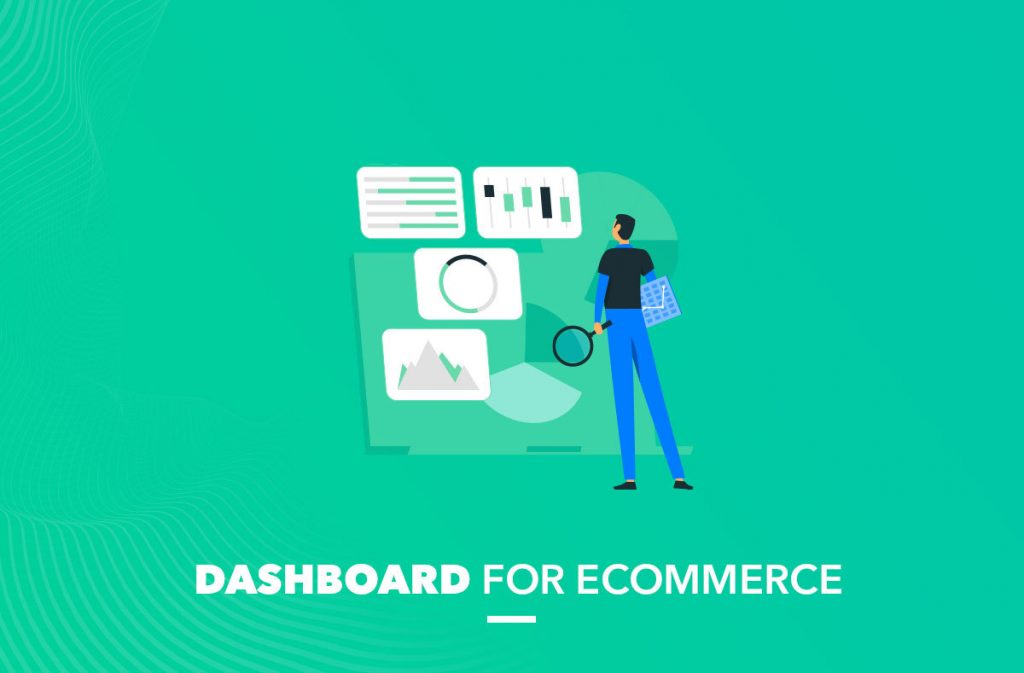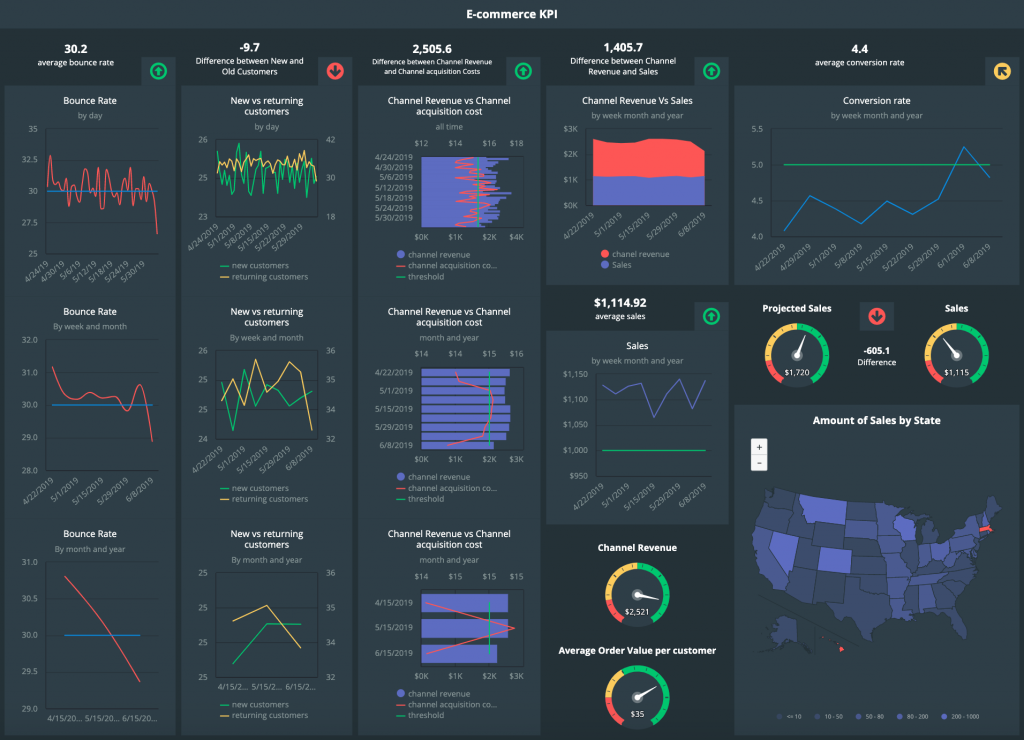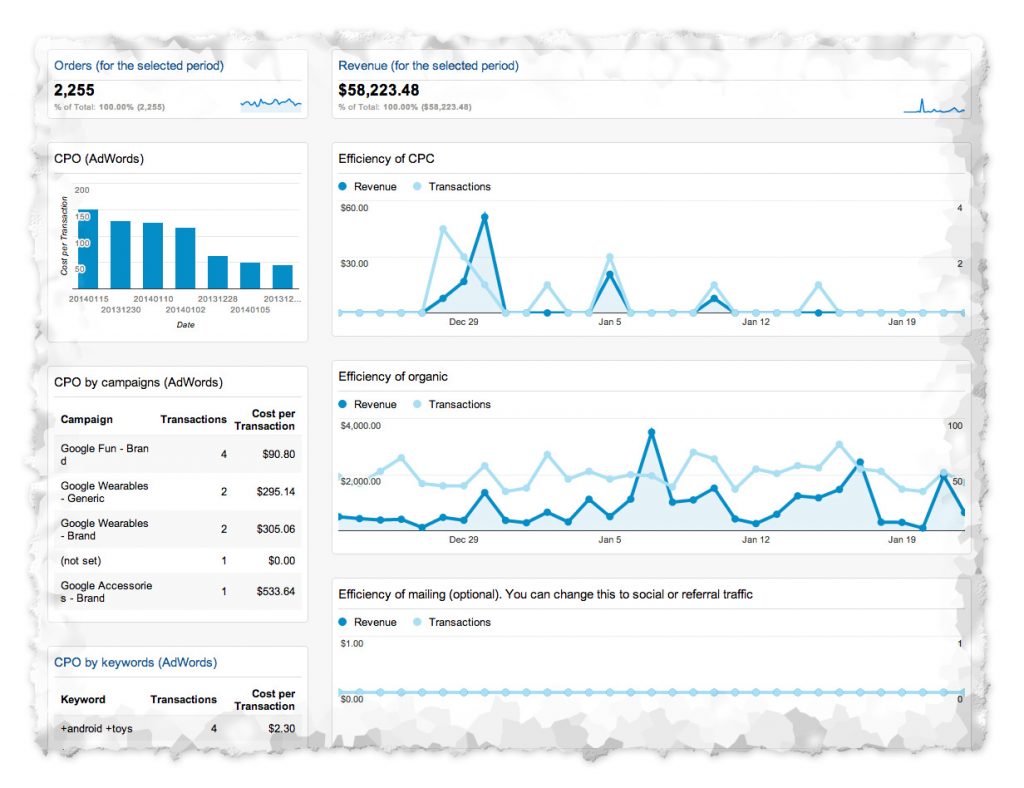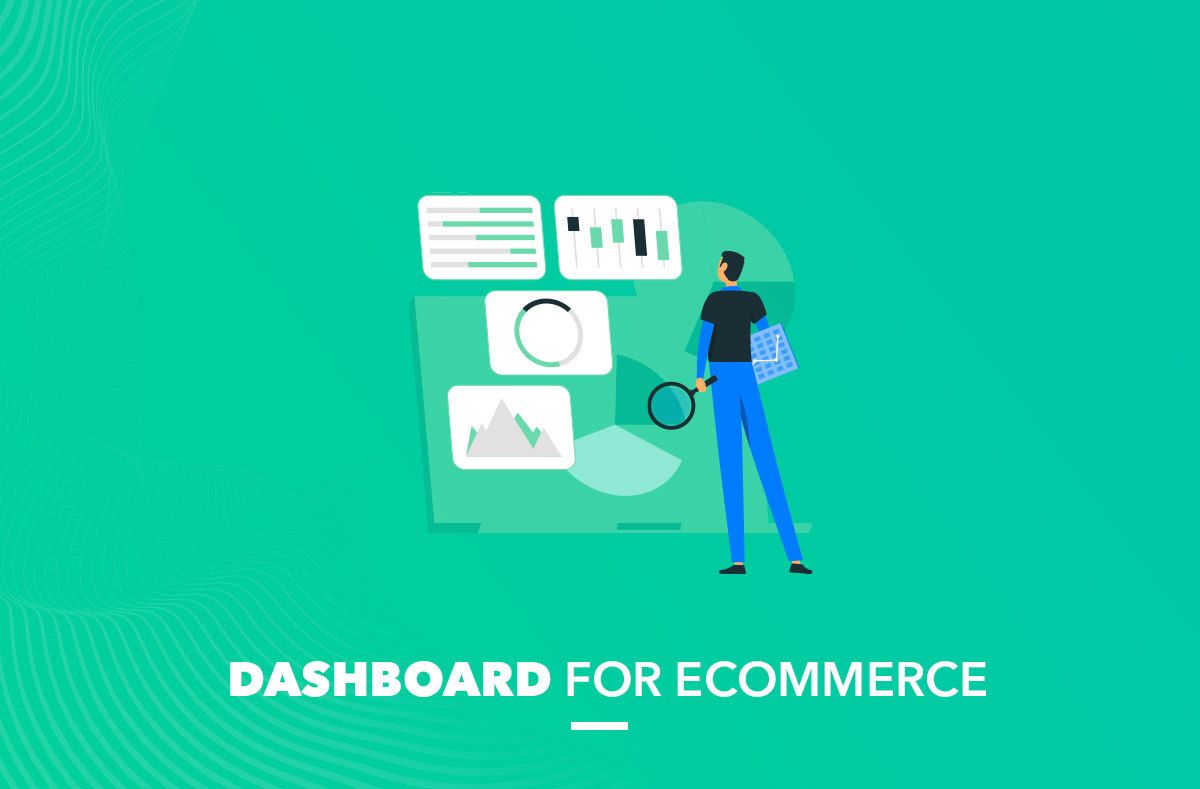
When it comes to running an online store, this means having a lot of responsibilities: gathering and processing loads of data, such as demographics of the customers and their preferences, customer feedback, and many other ideas and issues.
However, all of the data mentioned above are various in nature and need to be processed in different places. At the same time, the results of the data gathering and processing need to be reviewed and taken into account by the business owner. At this point, it is important to have a dashboard with eCommerce information at your fingertips so that the business decisions that need to be made are based on real data from the market.

What Is an eCommerce Dashboard?
To put it simply, an eCommerce dashboard is a tool that gathers all important data in one place. It might be a part of the eCommerce CMS or even a standalone application, but the most prominent feature of the eCommerce dashboard is a powerful visualization of crucial business data. Therefore, it is used for decision-making, especially considering the power of various data sources united in a single app. Practically, an eCommerce dashboard brings data obtained by Google Analytics, CRM, marketing tools, and social media tools to one place, where the data are properly processed and represented.
How can an eCommerce dashboard help your business?
An eCommerce dashboard has a lot of benefits but the most crucial one is offering only the most important and the most insightful information for your business. In other words, it is a case when less is more. With an eCommerce dashboard, you get the solutions to the most frequent issues, such as the website downtime, or a lack of tracking items in stock (items that are out of stock are still represented in the catalog as the ones that the customers might buy). Oftentimes, an eCommerce dashboard is a tool that helps to notice negative social media performance or lacking business development. Moreover, this information is visualized in a way so you don’t miss notifications.
What should you be tracking on your eCommerce Marketing Dashboard?
An eCommerce dashboard is fully customized, and it is another important perk of the tool. You can choose which data to track and which ones do not need tracking. At this point, just think about what goals you want to achieve with obtained data and create monitors for the business in general or for separate marketing campaigns so that the results are clear with sales and conversion rate. Anyway, an eCommerce dashboard is the most useful when it is used to visualize the data on customer engagement. Practically, you can know sources that bring customers to you, their preferences and demographics, and invest right into the most perspective ways of advertising.
What are the Some of the Most Important Insights I Can Get from an Ecommerce Dashboard?
Do you know the way your customers use your website? An eCommerce dashboard helps to find out. With an eCommerce dashboard, you can see and track chosen eCommerce metrics that you consider important and make decisions based on the information provided. Thus, smart marketing campaigns are getting closer with the use of an eCommerce dashboard.
Detect Major Issues and Fix Them Quickly
Oftentimes, when it comes to business development, there is a need to understand the issues that restrict business growth and then fix these issues specifically. As a result, eCommerce dashboards are often configured to show:
- Downtimes
- Mess with queries (too many queries or too long queries)
- Fulfillment and stock issues
The dashboard is capable of showing alerts about these issues so you can react quickly and accordingly.

Understand Customer Behavior Better and Adjust Your Efforts Accordingly
When it comes to customer satisfaction rates, it is crucial to clarify what items or services your customers need. Often, customers might come to your website for totally different things than you thought they come. Therefore, before improving customer engagement, it is a must to consider the real preferences, needs, and choices of the customers who visit your website. Just set specific goals to track, for example, your conversion rate needs to be rising, i.e. the more visitors buy something from your website, the better.
Interestingly, business owners often invest in design and the general view of their online stores while customers need other things, for example, smoothly working checkout. When there is something even slightly wrong with the checkout, your shipping cart abandonment rate is going to skyrocket and there is little you can do about this before you fix your checkout. An eCommerce dashboard is designed to help find out these things so you can improve your business successfully and quickly.
Some eCommerce dashboard examples
A dashboard that is going to help you grow and metrics on it is an individual thing. That said, every business should have its own. Moreover, the best dashboards are going to reflect the needs of your business at any time. In general, there are a lot of factors that impact the goals for your eCommerce dashboard, including but not limited to:
- Kind of items and services you sell
- Type of online store, namely B2B or B2C
- What kind of fulfillment and inventory services are used (own or outsourced)
- How many items are purchased and how long delivery is expected to be.
Conclusion
This article is nothing close to the guide on eCommerce dashboards and their looks. However, the idea is to let you know that there is such a tool as an eCommerce dashboard, and this tool might be extensively used to help the business grow. There are a lot of other resources that explain the dashboard and give examples but the most important thing is to make an eCommerce dashboard individual enough so that the factors that are crucial for your business are tracked. The SOFTLOFT team has already helped businesses to rise and shine with the use of dashboards as an analytics tool, and we are here for you too. Just contact us with any questions.



